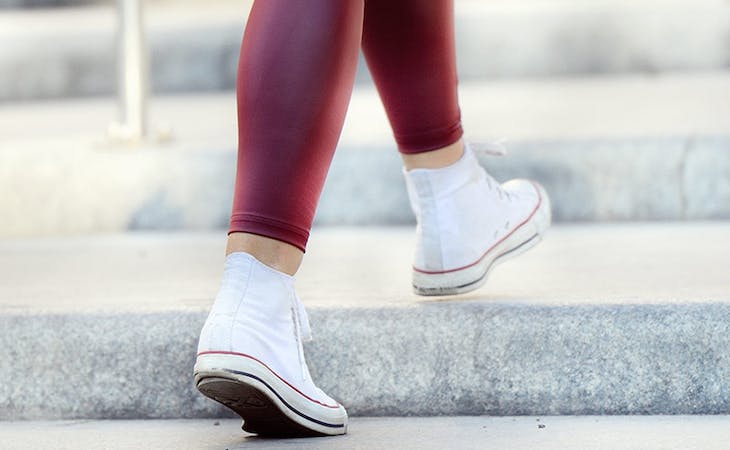Nothing can jolt you from sleep quite like your calf muscles seizing up in the middle of the night, completely without warning. These uncomfortable, painful, and annoying nocturnal cramps are quite common, especially among pregnant women and older adults.
Also known as a “charley horse,” this type of nocturnal leg cramp is an involuntary spasm, or contraction, of the calf muscle. “It feels almost like your leg is tightening,” says Terry Cralle, RN, certified clinical sleep educator. Typically a leg cramp can last from a few seconds to several minutes, and although it usually goes away relatively quickly, the pain often lingers, making it hard to get back to sleep.
What causes leg cramps during sleep?
For the most part, nocturnal leg cramps just happen, Cralle says, but certain daily habits can trigger them. You might experience nighttime leg cramps if:
- You overuse your muscles. Went out for a long run or hit the gym for a HIIT workout? Intense exercise can excite your nerves and put stress on your muscles, contributing to leg cramps in the middle of the night.
- You sit or stand all day long. Muscles aren’t meant to be stationary. They’re supposed to move, contract, and rest throughout the day. Standing and sitting for long periods prevents that from happening and can lead to muscle malfunction and fatigue that causes cramping.
- You wear the wrong shoes. According to Cralle, lack of supportive footwear and even too-high heels can be a factor. Shoes that are too tight or don’t fit properly constrict your muscles, leaving you vulnerable to leg cramps.
- You’re dehydrated. The risk is especially high if you exercise a lot or live somewhere very hot, because the more you sweat, the more fluids and electrolytes you lose—and that can cause your muscles to cramp up, explains Julie Rothenberg, RD, licensed dietitian in Miami. (Learn about the benefits of drinking water for sleep.)
- You don’t eat a balanced diet. Vitamin and mineral deficiencies and malnourishment can be the cause of nighttime leg cramps, says Cralle, especially not getting enough calcium, magnesium, or potassium.
- You have an underlying health issue. Nighttime leg cramps could be a symptom of a bigger issue, such as a kidney problem, which would affect the electrolyte balance in your body.
- You’re pregnant. You’re more likely to be deficient in magnesium and potassium during pregnancy, especially during the second and third trimesters.
How to treat nighttime leg cramps
The key to treating nocturnal leg cramps is to loosen up those muscles. Next time a leg cramp strikes in the middle of the night, Cralle suggests lightly massaging the area or even applying a heating pad to minimize the pain. Light stretches and a simple change in sleep position can help alleviate the spasm as well.
Try this basic calf stretch from the Cleveland Clinic:
- Stand up with your arms outstretched and palms against a wall.
- Step back with the leg that’s cramping.
- Lean forward on your other leg and push against the wall.
How to prevent leg cramps during sleep
If you’re prone to nighttime leg cramps, there are a few things you can do to prevent them from interrupting your sleep.
- Stretch your legs. Cralle suggests doing light stretches or even yoga before bed to stretch out your calf muscles. (Here are stretches that will help you fall asleep.)
- Change up your daily habits. If you find yourself sitting down too much, go for more walks to get those muscles moving. If you’re on your feet all day, take breaks and stretch. Make sure to drink plenty of water, and load your plate with magnesium- and potassium-rich foods like spinach, nuts, sweet potatoes, and bananas.
- Wear more supportive footwear. Ditch the restrictive heels for a more comfortable and well-fitting shoe.
- Check your bedding. Cralle suggests untucking the bed covers on the foot of the bed to give your legs more room to stretch out while you sleep.
Is hip pain ruining your sleep? Here are six ways to relieve hip pain at night.




